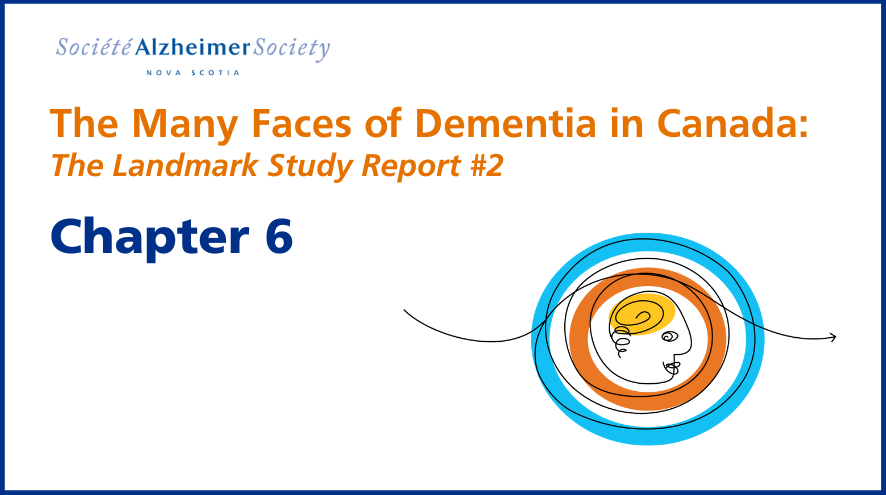Chapter 6: Promoting Inclusion for All People Living with Dementia
Learn more about Chapter 6 of the second volume of the Landmark Study, the Many Faces of Dementia in Canada, a report by the Alzheimer Society of Canada.

Research on dementia should also aim to be more inclusive. Studies should include participants from a wide variety of backgrounds and examine dementia across population subgroups that vary by sex, ethnicity, race, age, and gender, to name just a few.
Based on the findings from the Landmark Study, we can expect increasing numbers of people living with dementia across Canada over the next three decades. The growth in numbers is not equal across population groups. We expect a 273% increase in dementia numbers for Indigenous people. Dementia will likely become a growing public health challenge for Indigenous communities as their populations age and continue to face health challenges.
Among ethnic and racialized groups in Canada, growth in dementia numbers will likely occur fastest in individuals of Asian descent, followed by African, Latin, and Caribbean populations. This will lead to a shifting of the ethnic makeup of the population of people living with dementia in Canada. Clear differential outcomes across population subgroups point to the need for more research to understand these ethnic and racial differences in dementia. These findings also reveal that much more work is needed to design and deliver care and support services that are culturally appropriate to the growing number of people developing dementia with origins that are non-European.
When it comes to sex differences, the findings illustrate that dementia is more common among females compared to males. While the difference in risk might primarily be driven by the longer life expectancy of females, more research is needed to unravel all the complexities that occur due sex differences in biology and gendered experiences across the life course. This research should also include understanding differences in dementia onset, diagnosis, treatment, care and improved support for people who are intersex, trans, non-binary and gender-diverse.
The Landmark Study also provided estimates for the number of people likely to be diagnosed with young onset dementia over the next three decades. These findings highlight that at a national level, there will be a large number of middle-aged or younger adults who will develop dementia. These individuals will likely face additional challenges getting a diagnosis and support, as symptoms of young onset dementia are different than dementia presentation in people 65 and older, and health-care workers have less knowledge of dementia in this population. We need to develop a better understanding of the dementia experiences within this population and adjust our dementia services to meet their unique care needs.
Read this full chapter here.
